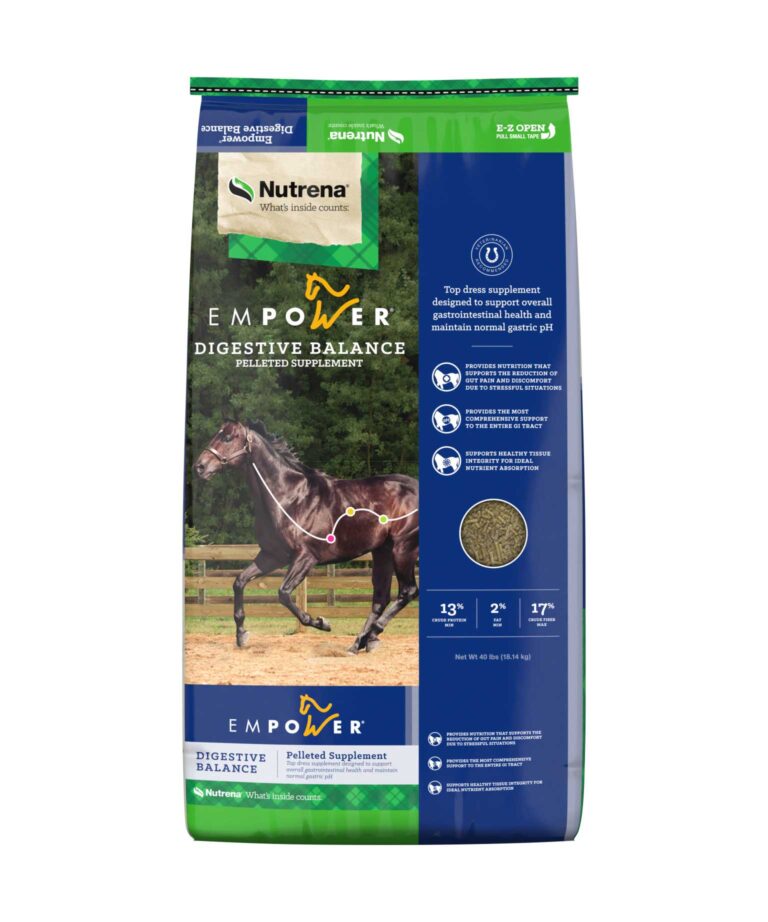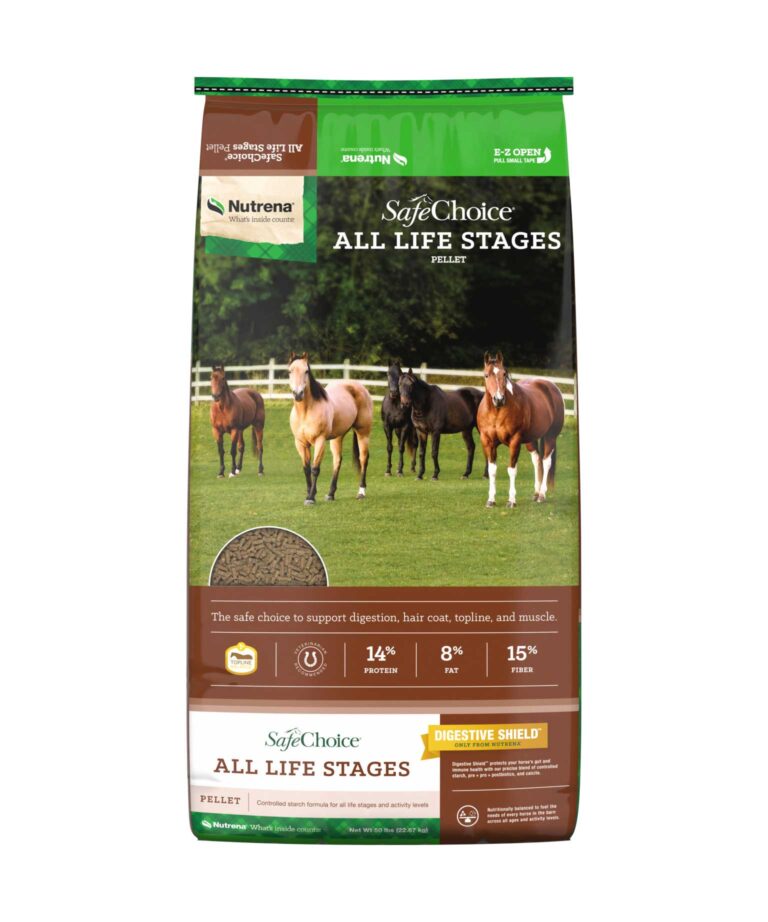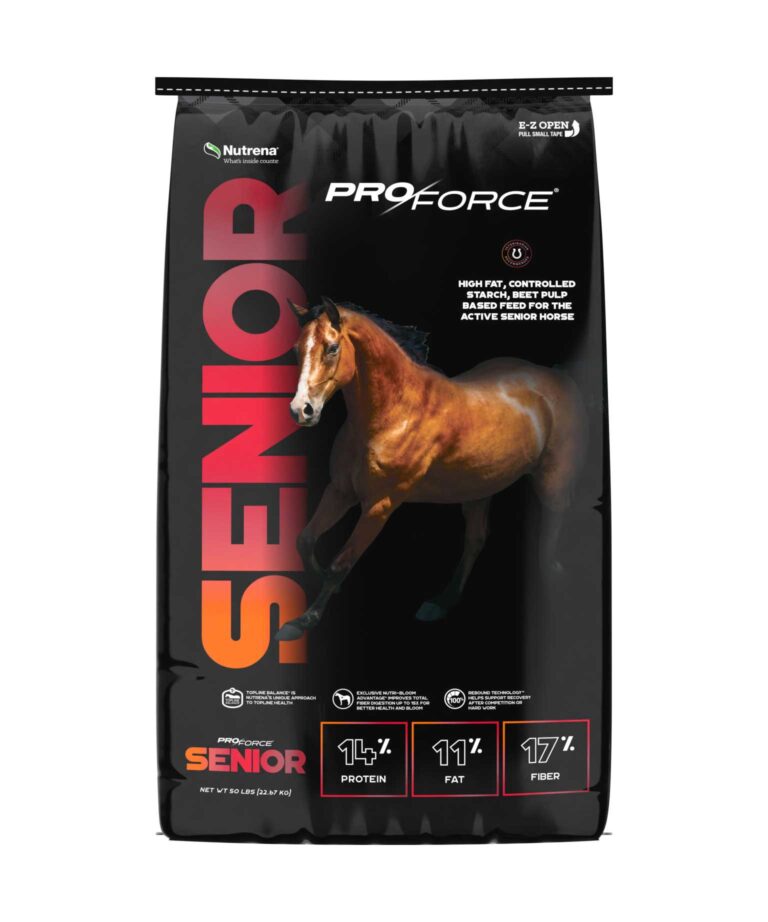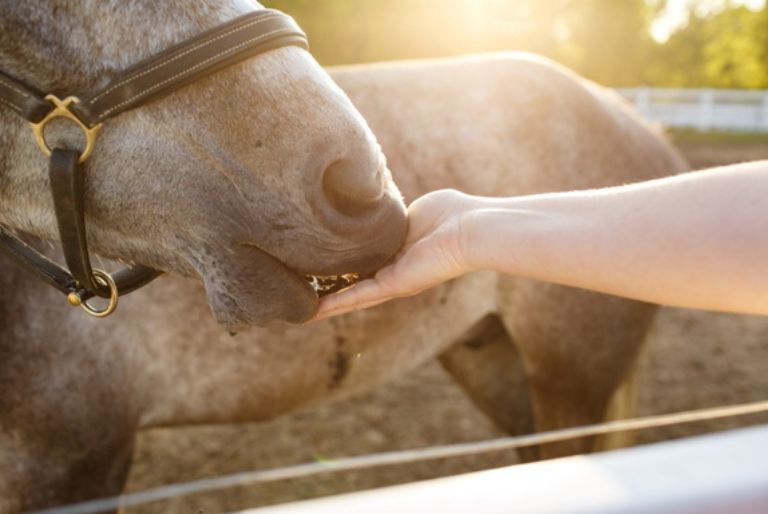Using Nutrition to Manage Horses with Gastric Ulcers
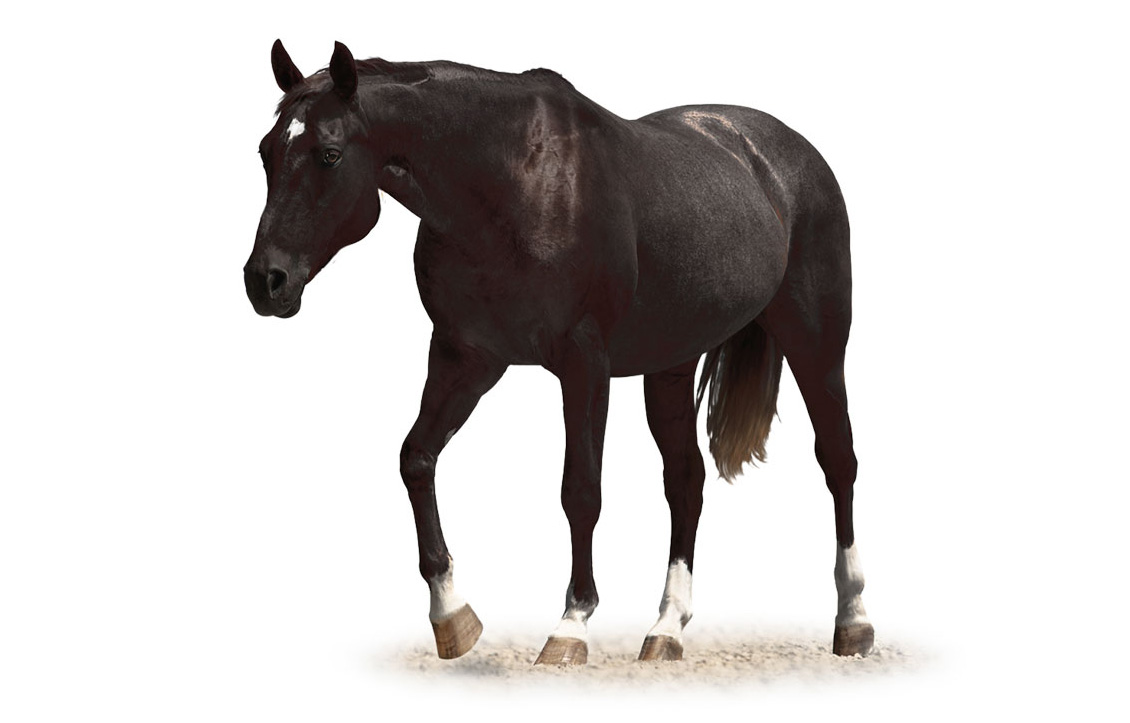
A horse owner recently contacted us about changing her horse’s diet. She stated that they are ¾ of the way through show season and he is just “off his game”. It seems that the horse was showing a lack of appetite and not finishing his grain. In addition, his disposition became rather grumpy and his performance level was suffering. In addition, a few times he had shown signs of mild colic over the past two months.
What Causes It?
We suggested the owner contact her veterinarian, as it sounded like the horse may have an ulcer. The percentage of horses with ulcers continues to increase, and higher intensity levels of training are correlated with an increase in ulcer incidence. The ulcers often occur in the upper third of the stomach, which does not have a mucus layer and does not secrete bicarbonate that helps to buffer stomach acid. In general, horses managed with 24-hour access to well-established, high-quality pasture are less likely to have gastric ulcers; however, studies have shown that the prevalence of squamous ulcers in horses exposed to pasture varies by regions of the U.S. and management. This is likely due to the fact that as a horse grazes, it produces large amounts of saliva, which contain the bicarbonate and amylase needed to provide a buffer for the stomach lining.
Managing Horses With Gastric Ulcers
Within the week she contacted me and said the horse had been diagnosed with a gastric ulcer. He was now on medication, but we needed to make dietary changes as well. I suggested the following “back to basic” steps to help manage her horse’s condition:
- Allow the horse to be turned out or hand grazed.
- If access to pasture is not possible, good quality hay is a must. Recent studies indicate that legume hay such as alfalfa is an excellent choice due to the high calcium content which may help to serve as a buffer.
- Breaking the daily rations into smaller more frequent meals helps keep saliva production constant and protect the stomach lining “more like “grazers” instead of “meal eaters”. If possible, use a slow feed hay net (also called a nibble net) to allow the horse to consume hay more slowly and increase chewing time. Also, it’s a good idea to feed hay prior to grain.
- High starch diets also tend to aggravate ulcers due to increased acid production. A high fat, high fiber feed is ideal.
- Consider a digestive supplement such as Nutrena Empower Digestive Balance which contains marine sourced calcite. It is a highly porous form of calcium, includes other trace minerals such as magnesium, and has twice the buffering capacity of regular calcium carbonate.
It’s important to remember that all horses are unique and respond differently to stressors. If you can minimize stressors as much as possible, provide your horse with access to pasture and light exercise, offer quality nutrition and forage, you are helping to limit the chance your horse will develop ulcers.
Ready to ensure your horse is getting the optimum nutrition at feeding time, every time? Find the perfect feed formulated specifically for horse’s needs with our Feed Selector Tool.

